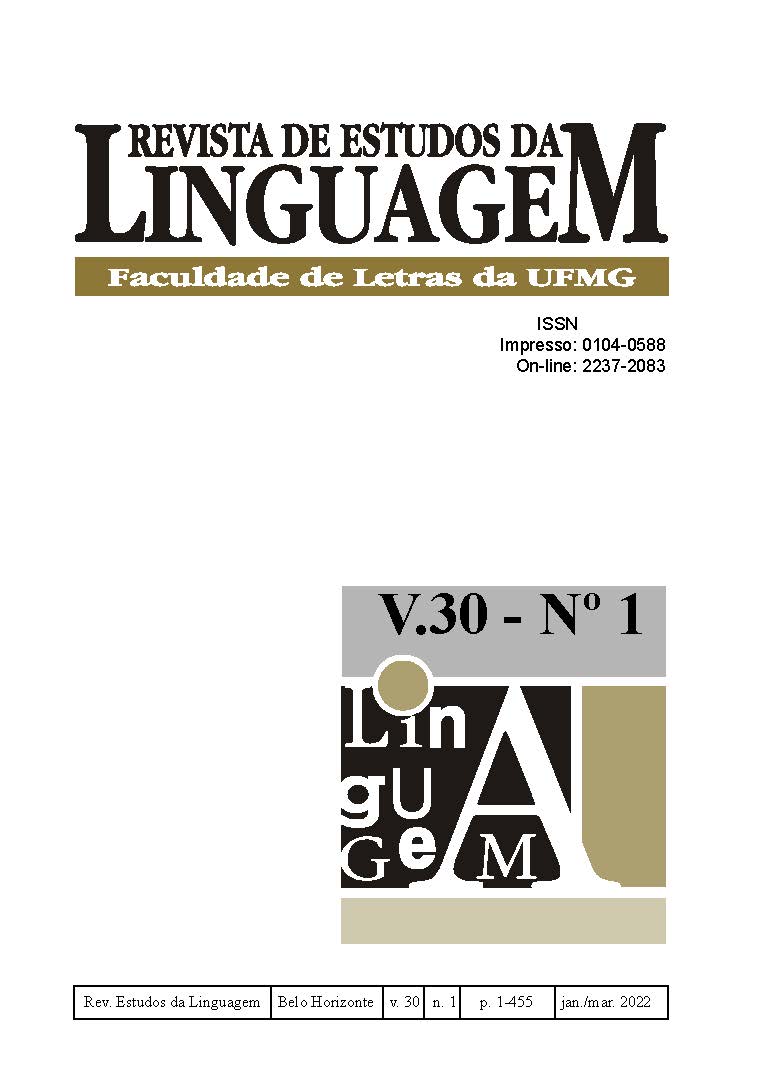Diferença na produção de Expressões Não-Manuais por usuários fluentes em Libras como primeira ou segunda língua
DOI:
https://doi.org/10.17851/2237-2083.30.1.53-84Palavras-chave:
expressões não-manuais, primeira Língua, segunda língua, fonética instrumental, Língua Brasileira de SinaisResumo
As Expressões Não-Manuais (ENMs), em combinação com outros parâmetros como configuração, localização, movimento e orientação da palma da mão, são responsáveis pelos sinais que contemplam o léxico das línguas de sinais. Essas ENMs são movimentos do corpo e da expressão facial (BAKER-SHENK; COKELY, 1980) que possuem funções como diferenciação lexical, participação na construção sintática e contribuição para processos de intensificação (PAIVA et al., 2018). O atual trabalho tem como objetivo comparar o uso dessas ENMs entre um surdo fluente em Língua Brasileira de Sinais (Libras) como primeira língua (L1) e um ouvinte, fluente em Libras, como segunda língua (L2), a partir de enunciados assertivos afirmativos e negativos, interrogativas parciais, imperativas, incluindo sentenças com expressão de intensidade e movimento de topicalização. Utilizando o programa ELAN, foi possível transcrever esses enunciados considerando movimentos de sobrancelha, olhos, nariz, bochechas, boca, cabeça e tronco. A hipótese inicial é a de que o sinalizante fluente em Libras como L2 intensificaria com certa frequência e com movimentos mais amplos sua produção de ENMs, considerando esta uma questão da identidade com uma L2 e, também, a sua intensificação sendo necessária, por razões didáticas. A análise quantitativa avaliou durações e amplitudes médias dos sinais manuais e ENMs e a análise qualitativa averiguou a presença e marcação de cada ENM em relação à cada tipo de sentença. Ambas as análises apontam que o participante surdo produziu as ENMs responsáveis pela marcação dos diferentes tipos de enunciados de forma mais sistemática e ampliou mais a produção de ENMs do que o participante intérprete.





